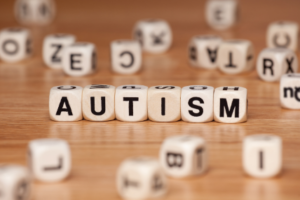When Is World Autism Acceptance Week?
Mark your calendars because Autism Awareness Day and World Autism Acceptance Week are coming up! Every year on April 2nd, people around the world celebrate Autism Awareness Day to increase understanding and acceptance of individuals on the autism spectrum.
But that’s not all – during the first week of April, we also celebrate World Autism Acceptance Week, which takes things to the next level by promoting inclusivity and celebrating the strengths of those with autism.

In this post, we answer the question, ‘when is world autism acceptance week?’ and raise awareness by sharing the messages that key groups such as the National Autistic Society would like everyone to hear.
We also look at some key guidance for teachers, mentors and tutors supporting students with autism.
Understanding the Importance of Autism Awareness Day and World Autism Acceptance Week
Autism Awareness Day and World Autism Acceptance Week are two different but complementary events that aim to raise awareness and promote acceptance of autism. Autism Awareness Day is a global event that takes place on April 2nd every year. It is intended to increase awareness and understanding of autism, a developmental disorder that affects communication, social interaction, and behavior.
On the other hand, World Autism Acceptance Week, which takes place during the first week of April, is a more recent initiative that aims to go beyond awareness and promote acceptance of autism. The goal of this event is to encourage people to recognize the strengths and talents of individuals on the autism spectrum and to promote inclusivity and understanding.
The focus on autism awareness and acceptance is essential because individuals on the autism spectrum often face discrimination and misunderstanding due to the way they interact with the world. By promoting awareness and acceptance, we can help to create a more inclusive and accepting society where individuals on the autism spectrum are valued for their unique strengths and talents.
World Autism Awareness Day
There are seven health-focused days set up by the United Nations. World Autism day is one of them. The aim of the day is to bring together the growing number of autism organisations across the world. Increasing collaboration in research, diagnoses, and raising awareness are the core objectives.
At Prospero Teaching, many of our teachers, TAs, Tutors and mentors support young people who have a form of autism each and every day. Consequently, we are passionate about the fantastic work that they do, and we’re keen to celebrate this day by raising awareness and positive ideas.
When is Autism Awareness Day?
This year, Autism Awareness Day is taking place on Saturday the 2nd of April.
Controversy Around the Phrasing ‘Autism Awareness’
The phrase ‘Autism Awareness’ has raised controversy among autism rights supporters. They argue that this terminology adds to the ableism around autistic people.
‘Ableism’ – defined as social prejudice or discrimination against people who are disabled. Ableism defines people by their disabilities and percieves them as inferior to ‘non-disabled’ people.
Alternatively, advocates for autism rights prefer the term ‘Autism Acceptance’. It’s important that we consciously promote overcoming any prejudice towards autism alongside increasing awareness.
In light of this, we are celebrating ‘World Autism Acceptance Week‘ which takes place between March 27th and April 2rd. The National Autism Society’s theme is colour, and they have a range of activities to raise funds and increase understanding.
Further reading:
Our Free Online Course for Teachers and Teaching Assistants
Notably, this course is a brilliant resource for education staff who may be looking to work in SEN for the first time, or will be working with a student who has been diagnosed with ASD. Within, you will learn about the early indicators of autism and how diagnoses are made.
Following this, the course explores why people with the lifelong condition autism can be misunderstood in public, as well as how people communicate can be challenging. A number of strategies for supporting young people with ASD are presented.
How To Support Students with Autism
The transition to working with a new adult or navigating healthcare systems can be overwhelming for many young people, especially those with autism who may face additional challenges. These challenges can include adapting to unfamiliar environments, forming relationships with new teaching staff and healthcare professionals, and managing increased levels of academic or medical demands.
These difficulties can lead to increased anxiety, making it harder for students or patients to overcome their challenges and reach their potential. As a tutor or healthcare professional in Children’s Educational Services or in a healthcare capacity, there are a number of ways you can support these individuals in achieving success.
Here are our top five recommendations:
1. Begin By Highlighting a Student’s Strengths
During your first session, start by finding and celebrating your student’s strengths. Talk about ways that these strengths can support their studies. For example, ‘excellent focus’ or ‘high interest in the subject’ can be really helpful attributes when researching a topic for an assignment.
This is much more positive than opening with questions like, ‘what do you find most difficult?’ or ‘what prevents you from succeeding with your work?’ This way, we set the tone for empowering the student and guiding them towards playing to their strengths.
2. Find A Study Space That Works
The busy rush of a new setting can be incredibly distracting for students with autism. It would be useful to discuss with your student their preferences before you choose a space to meet and study. Find out how they manage sensory stimuli such as auditory or visual.
Students are likely to find it comforting to have a schedule set up as they become more familiar with the various settings. If changes occur, make sure that advance notice is given to the student to avoid unnecessary anxiety.
3. Be Clear & Concise
Be aware that ambiguous wording and phrases that have multiple meanings can cause confusion for students. Make sure that you think about the clearest and most concise way that you can deliver a message to your student.
If you are planning on working on a particular resource or text in a session, give your student the option to receive this before the session. This will reduce anxiety as it enables individuals to prepare for what’s coming up.
4. Be Empathetic, Positive & Accepting
There are likely to be a few bumps along the way, and managing anxiety is likely to feature in your sessions. It’s important that you are empathetic and understand where your student is coming from.
If your student is currently following a set of ‘personal rules’ and is having difficulty with an aspect of student life, such as meeting deadlines, be sure to take notice of their ‘rules’ and accept how difficult things are for them.
If you try and bypass this by saying, for example, ‘Oh don’t worry about that – I would tackle it like this…try it!‘ you will probably stress the student out even more. Be positive and accepting, ‘I can see this is very difficult for you at the moment. I know you always do x, but would it work if you tried y?’
Be clear that your student can leave a tutoring session or take some time out if they start to feel overwhelmed. Reiterate that they will not be in trouble for this, and show that you are there to offer positive support.
5. Continue to Learn and Share Knowledge
When supporting students with a range of individual needs, there is always more to learn and discover. We’d advise you to regularly read around the latest guidance on supporting students on the autistic spectrum. You could even request training from the National Autistic Society. Additionally, Ambitious About Autism’s Toolkit is an invaluable resource if you’d like further information.
Thank you for reading our post on Autism Awareness Day and Autism Acceptance Week, we hope you found it informative. If you’d like to get involved in the discussion, we’d love you to share your ideas and thoughts via our social media feeds.
If you are on the lookout for a new role, you can view all our latest school vacancies here.
Our specialist consultants are always happy to help you on their career journey – register and we’ll get in touch with you. In the meantime, why not try our free CPD-accredited training courses?
Teaching Blog
No results found.....
